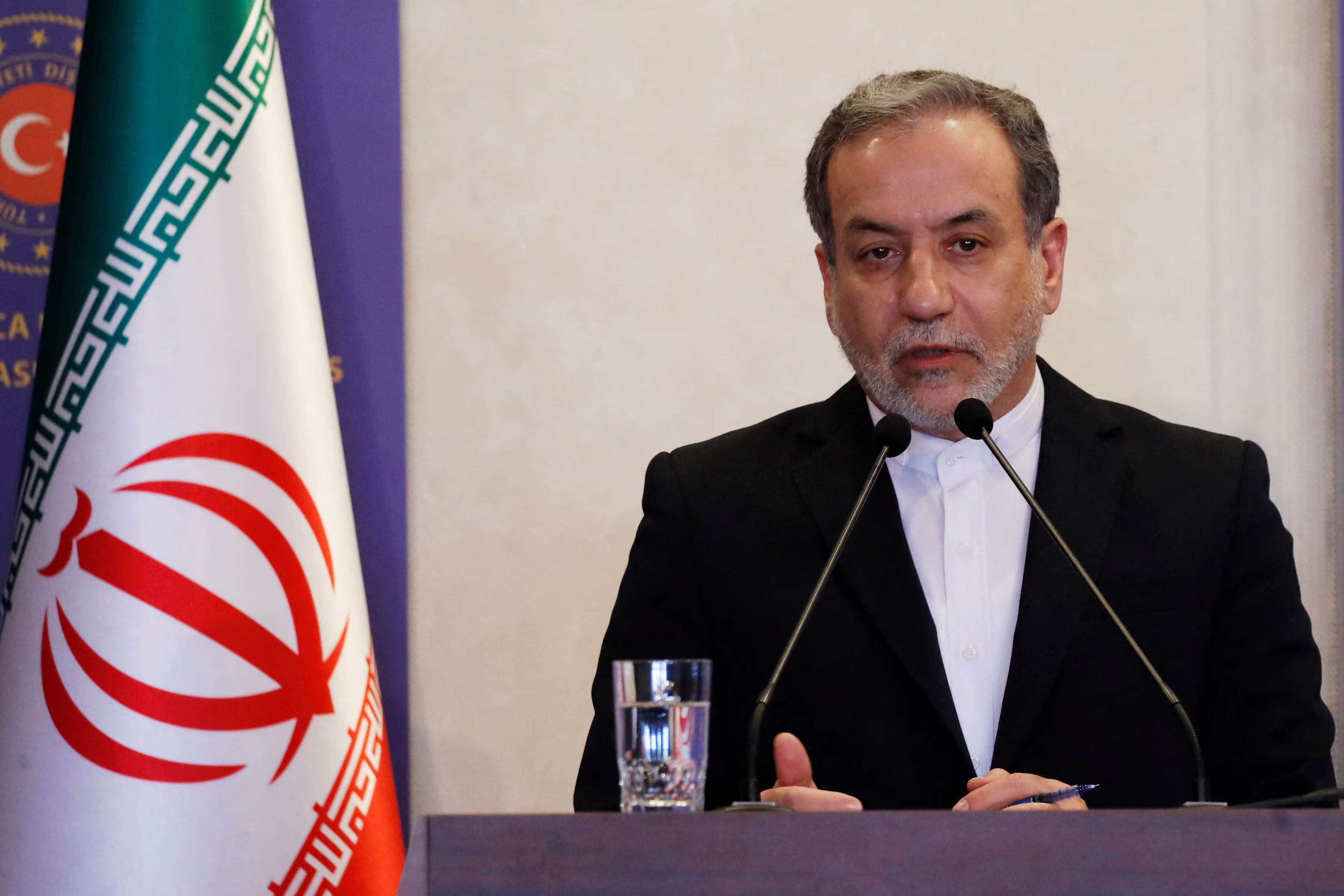Iranian Foreign Minister Abbas Araqchi has issued a strong warning to three European nations pursuing a resolution against Iran at the United Nations nuclear watchdog’s Board of Governors meeting.
Speaking with his French counterpart, Araqchi cautioned that such a move would escalate tensions and hinder progress in resolving key issues. The statement was shared by Iran’s foreign ministry on its Telegram channel on Wednesday.
The resolution, proposed by France, Germany, and the United Kingdom—often referred to as the E3—criticizes Iran’s nuclear activities and calls for increased transparency and cooperation with the International Atomic Energy Agency (IAEA).

The E3’s concerns center around Iran’s enrichment of uranium beyond agreed limits, its installation of advanced centrifuges, and restrictions placed on IAEA inspections of nuclear facilities.
This move by the European powers comes amid heightened international scrutiny over Iran’s nuclear program, with Western nations accusing Tehran of failing to comply with commitments outlined in the Joint Comprehensive Plan of Action (JCPOA).
READ ALSO: U.S. to Provide Ukraine with Antipersonnel Land Mines Amid Escalating Conflict with Russia
The 2015 agreement aimed to curb Iran’s nuclear capabilities in exchange for sanctions relief, but its future has been uncertain since the United States unilaterally withdrew in 2018.
In his conversation with the French foreign minister, Araqchi emphasized that the proposed resolution would be counterproductive and further strain relations between Iran and the international community. “Such measures will only complicate matters and create additional obstacles for constructive dialogue,” Araqchi stated, urging the European nations to reconsider their approach.
Tehran has long maintained that its nuclear program is for peaceful purposes and that its actions are a response to the U.S.’s withdrawal from the JCPOA and subsequent imposition of sanctions. Araqchi reiterated Iran’s stance, accusing Western nations of failing to uphold their end of the agreement and contributing to the current impasse.

The resolution is part of ongoing international efforts to address concerns over Iran’s nuclear ambitions. However, it risks exacerbating tensions at a time when diplomatic efforts are critical.
Iran has warned that passing such a resolution could lead to further restrictions on IAEA inspectors and diminish prospects for restoring the JCPOA. Tehran has already reduced its compliance with the agreement in response to U.S. sanctions, and additional punitive measures could prompt even bolder moves, such as increased uranium enrichment.
READ ALSO: Donald Trump Nominates Former WWE CEO As Chief Of Department Of Education
France, Germany, and the UK have walked a fine line in their dealings with Iran, advocating for diplomacy while pushing for accountability. Their resolution at the IAEA Board of Governors meeting reflects growing frustration with Iran’s lack of transparency. However, the move also risks alienating Tehran, potentially closing doors for negotiation.
Araqchi’s remarks highlight Iran’s desire for a different approach—one rooted in dialogue rather than confrontation. “The resolution is not a solution,” he said, urging France and its European partners to reconsider their strategy. He stressed the importance of trust-building measures to create a conducive environment for resolving disputes over Iran’s nuclear activities.

As the IAEA’s Board of Governors convenes, the stakes remain high. A resolution against Iran could signal growing impatience from the international community but risks further polarizing an already fragile situation. On the other hand, a softer approach that prioritizes diplomacy and compromise could pave the way for renewed talks.
The outcome of this debate will likely shape the trajectory of the nuclear standoff and determine whether the JCPOA can be salvaged. For now, Iran’s warning serves as a reminder of the delicate balance between accountability and the need for constructive engagement in addressing global security concerns.
Discover more from Cine critique
Subscribe to get the latest posts sent to your email.

